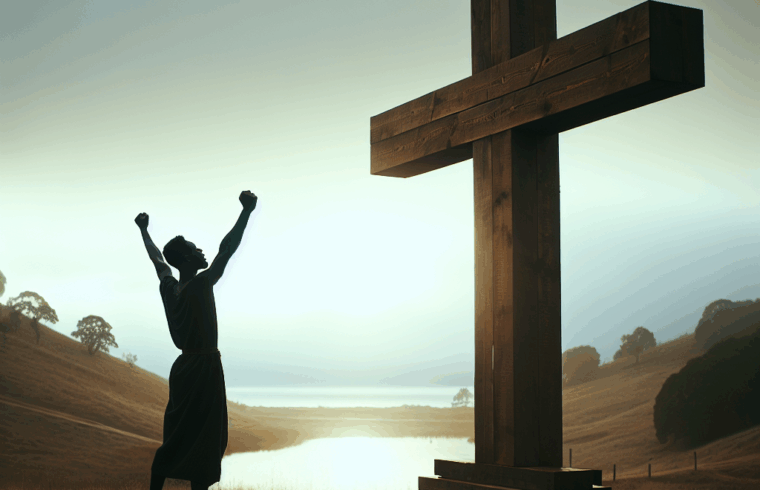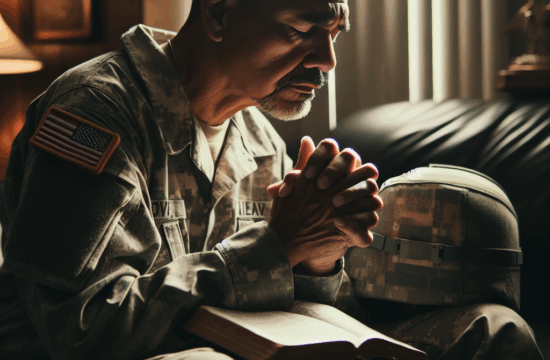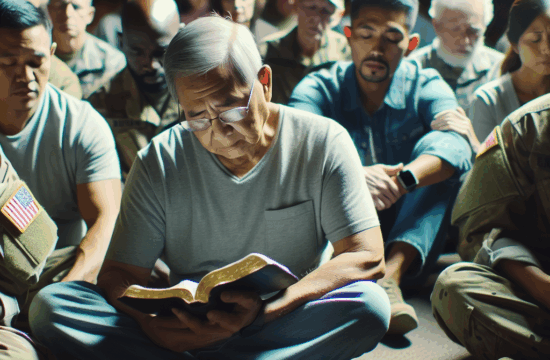==> Thank you for reading this post! Click Here If you are looking for support and Victory over PTSD.
Understanding PTSD
What is PTSD?
Hey there! Let’s start by diving deep into what PTSD really is. Post-Traumatic Stress Disorder is a mental health condition that some people develop after experiencing or witnessing a traumatic event. Whether it’s combat, natural disasters, accidents, or other serious incidents, it can leave a lasting impact.
Many folks think PTSD only affects veterans, but that’s a misconception. Anyone can develop PTSD after experiencing trauma, and it can manifest in various ways, from flashbacks to anxiety attacks. Understanding this is crucial for anyone trying to cope with their own symptoms or help someone else.
Recognizing PTSD is the first step toward recovery. It allows us to confront it and seek appropriate help, whether through therapy, support groups, or faith-based approaches—which is the core of my journey. I found a faith-based support that was incredibly healing for me.
Common Symptoms
Now, let’s talk symptoms. PTSD can show up in different forms; some folks might experience nightmares, while others might find themselves avoiding places that remind them of their trauma. It’s a bit like a mixed bag, honestly.
Some of the most common symptoms include flashbacks, heightened emotions, irritability, and physical symptoms like increased heart rate. It can make life feel like you’re constantly on edge, and when these symptoms hit, it’s hard to focus on anything else.
When you recognize these symptoms—either in yourself or someone you care about—it’s super important to understand that it’s okay to seek help. Feeling overwhelmed doesn’t have to be a lifelong ordeal, and there’s hope in the journey to healing.
The Importance of Support
Let’s be real; going through PTSD is tough, and it’s even tougher if you go it alone. Having a support system can make a world of difference, whether it’s friends, family, or a faith community.
In my own experience, opening up about my struggles to trusted friends helped me feel less isolated. They didn’t always have answers, but just knowing they were there was comforting. Their willingness to listen transformed my healing journey.
Plus, support groups, including those based on faith, offer a fantastic space to connect with others who get what you’re going through. It’s reassuring to share stories with people who’ve walked a similar path—and faith can play a huge role in that connection.
Finding Faith in the Healing Process
The Role of Faith
When I was knee-deep in my struggles with PTSD, I found myself searching for something—anything—to help guide me through. That’s when my faith really stepped up. For many, including myself, faith provides hope and a sense of purpose when everything feels meaningless.
Turning to my beliefs during dark times allowed me to see that I wasn’t alone. It reminded me of the unconditional love and support available to me through my spirituality, and that was a game-changer in my healing.
I started praying regularly, diving into Bible verses that spoke to my heart, and surrounding myself with positive influences. This journey brought about a profound sense of peace, even amidst the storms of my mind.
Prayer and Meditation
Prayer became my go-to; it was like venting to a friend who always listened. I found solace through talking to God about my struggles. Whether I was in my room or out in nature, those moments of connection were so powerful.
Meditation, too, played a role. Sitting quietly, focusing on my breath, and letting those anxious thoughts drift away felt freeing. It was reminiscent of casting my cares upon Him, as I learned to let go of what I couldn’t control.
Finding a balance between prayer and meditation helped me cultivate an inner landscape of tranquility as I welcomed healing into my life.
Community and Connection
Don’t underestimate the power of community! My journey included finding a church group that discussed mental health openly. I discovered I wasn’t alone in my struggles, and that was a revelation.
This community provided not just spiritual nourishment, but practical support through shared stories and experiences. When we uplift each other, it creates a massive ripple of healing.
Engaging in acts of service as part of this community also helped me shift my focus from my pain to something greater. It’s incredible how the act of giving back can lift your spirits!
Overcoming the Stigma
The Weight of Stigma
Being open about mental health, especially PTSD, can feel like a daunting mountain to climb. Unfortunately, there’s still a stigma attached, which can hinder many from seeking the help they need. For me, that was a barrier I had to break down.
Many people fear being labeled or judged, and that fear can be paralyzing. I, too, worried about what others would think. The reality is, mental health struggles are more common than you might think, yet we keep it under wraps.
Addressing stigma directly in our communities can lead to more understanding and less judgment, allowing more people to seek the help they desperately need.
Get Support and Help with Recovery! Visit us for more Information and Support
Engaging Conversations
One way to tackle stigma is through conversation. Opening up about my PTSD became a way for me to encourage friends to share their own struggles, creating a safe space for dialogue. It’s amazing how sharing our stories can connect us!
These conversations pave the way for education, empathy, and understanding. We can help break those stereotypes surrounding mental health. It starts from a place of kindness, leading to impactful change.
With each conversation I had, I saw more people opening up. By being vulnerable, I motivated others to do the same, and that’s how we can start changing the narrative around mental health!
Creating Safe Spaces
As we push against stigma, creating safe spaces—whether in churches or community groups—is crucial. These are environments where people can share their stories without fear. I believe every place should foster an atmosphere of acceptance and understanding.
Encouraging discussions in these safe spaces contributes to healing not only for individuals but for the entire community. It removes the ‘us’ versus ‘them’ mentality that can often prevail in mental health discussions.
Through support groups and community engagements, we can build a culture of compassion and understanding, allowing recovery stories to flourish.
Living Beyond PTSD
Building Resilience
Living with PTSD doesn’t have to define me. In fact, through my journey, I’ve learned how to build resilience. What’s that mean? It’s about bouncing back after facing struggles and setbacks.
I started looking at my experiences as lessons rather than defining moments. It’s empowering to know that I can grow and thrive beyond the pain. I began to set achievable goals, no matter how small, to celebrate my progress.
Each day, taking one small step toward better mental health helped me accumulate little victories. That accumulation built my resilience muscle, preparing me for whatever life throws my way.
Embracing Healthy Coping Mechanisms
The journey of living beyond PTSD also includes finding healthy coping strategies. Initially, I struggled with feeling overwhelmed and resorted to unhealthy habits to cope, but I learned that there are much better ways to handle my emotions.
Exercise became my best friend—I found that a quick jog or yoga session could dramatically shift my mood. Mindfulness activities, like journaling and art, offered me an outlet to express what I was feeling.
By surrounding myself with positivity and choosing healthier options to cope, I slowly began to see life through a different lens. The transformation felt exhilarating!
Continuing the Journey
Lastly, it’s so important to remember that healing isn’t a destination; it’s a journey. I celebrate every milestone—big or small—because it reminds me of how far I’ve come. Staying dedicated to my mental health has become a vital part of my daily life.
I continue to seek resources and support systems that encourage my well-being, and I hold on to my faith throughout the process. Healing doesn’t happen overnight, but with effort and the right mindset, it opens the doors to a brighter future.
Always remember, it’s perfectly okay to ask for help along the way! We’re all in this together, and every step forward counts.
FAQ
What is PTSD?
PTSD, or Post-Traumatic Stress Disorder, is a mental health condition triggered by experiencing or witnessing a traumatic event.
How can faith help in PTSD recovery?
For many, including myself, faith serves as a pillar of strength, providing hope and a sense of purpose during challenging times.
What are some effective coping mechanisms for PTSD?
Healthy coping mechanisms include exercise, mindfulness practices like meditation or journaling, and building a support system to share experiences and feelings.
How can I support someone with PTSD?
Be there to listen without judgment. Encourage them to seek professional help and be open about their struggles, creating an environment where they feel safe to share.
Is it possible to fully recover from PTSD?
Yes! While it may take time, with the right support, faith, and coping strategies, many people find they can lead fulfilling lives beyond PTSD.













